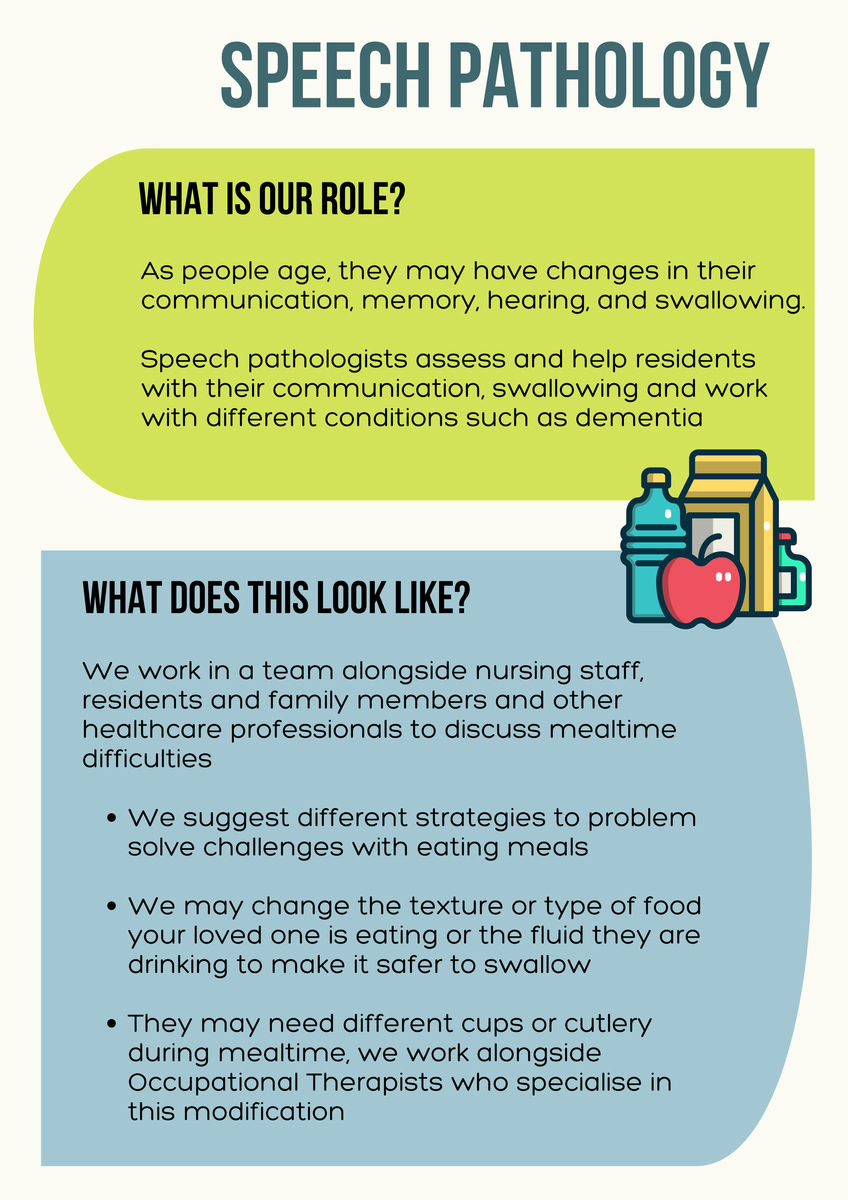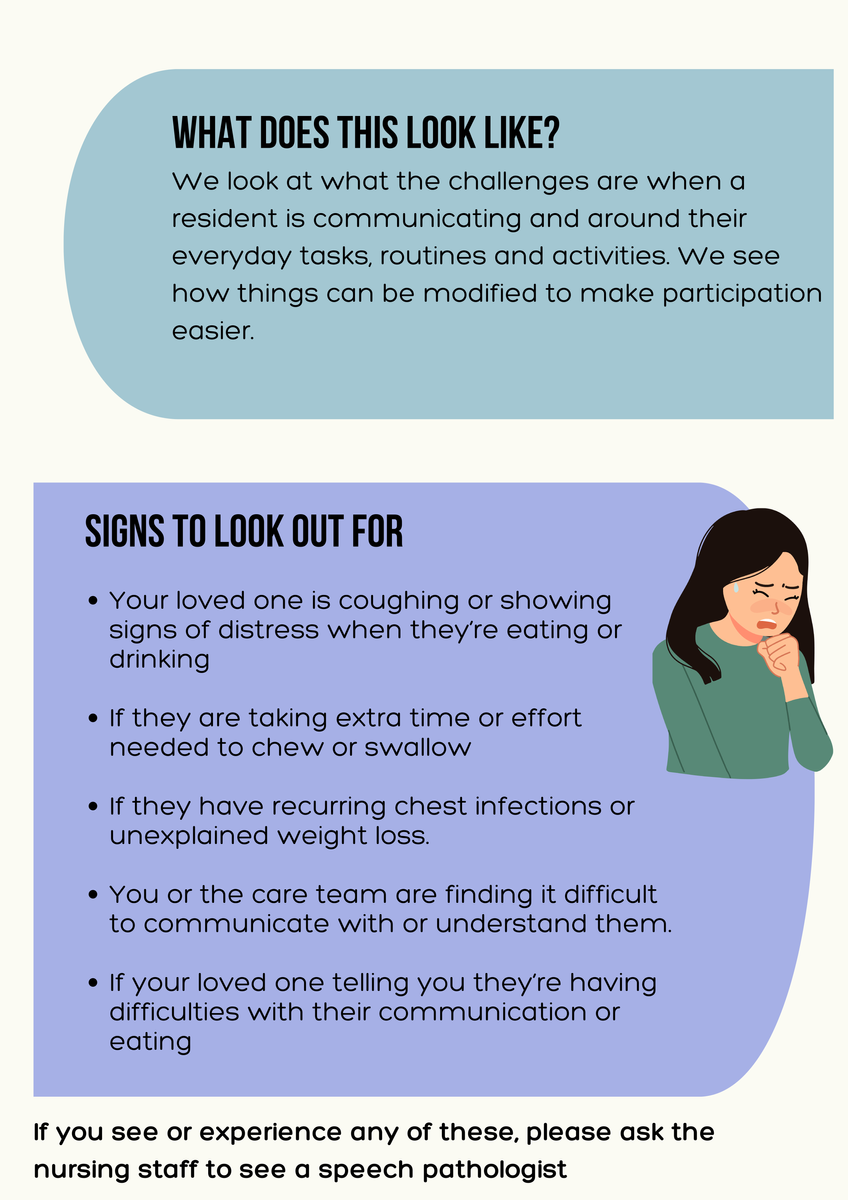Careers Corner

Congratulations to Rocco Kajer
Congratulations Rocco Kajer, Year 12 who was signed up with NR Gardiner Constructions through MEGT on September 6th.
Rocco has commenced his Cert III Carpentry SBAT with Head Start!
What is a Speech Pathologist?
Speech pathologists work with people of all ages who have trouble understanding and talking with other others. They might work with patients to improve their reading and spelling, and teach them how to use technology or other ways to improve their communication skills. Speech pathologists also help people who have trouble swallowing, which can make eating and drinking difficult.
What skills and strengths are needed?
- Good listening and interpersonal skills
- Enjoy language and communication
- Able to inspire confidence and cooperation
- Enjoy working with people
- A patient and tactful approach to people's problems
What are the pathways?
Speech pathologists must be university educated either through an accredited Bachelor or Master’s degree.
There are four universities in Victoria that offer Speech Pathology - ACU, Victoria University, Federation University and La Trobe University. The ATAR is often around the 80 mark and prerequisite subjects include English, and quite often a Science or Maths subject. These vary depending on the university.
Where do they work?
Some of the places that Speech Pathologists work in are kindergartens, primary and secondary schools, paediatric clinics, communication clinics, hospitals, the justice system, private practices/clinics and residential aged care facilities.
Here are some ways Speech Pathologists assist with the elderly:
Do you want to study Medicine?
Start planning if you’re Years 9, 10, or 11 and you want to study medicine!
It takes years of dedication and full-time study to become a doctor so, you need to take a long view when planning your medical pathway, starting in high school. The earlier you start your research and begin immersing yourself in the medical world, the better!
School Subjects
Prerequisite subjects are ones you must study in order to be considered for a course. For medicine, they are often English, Chemistry, Maths and sometimes other sciences. While biology isn’t necessarily a prerequisite, studying it at school will help in your first couple of years of medicine as it’s the foundation to most of your learning.
University Entry
If you’re really serious about getting into medicine, consider applying for courses Australia-wide. Universities have different entry requirements that can be complicated, so keep track of your progress through the application stages for each on you apply to.
Entry from school is extremely competitive and is generally dependent upon your:
- school results/ATAR,
- test scores/UCAT result,
- and an interview process/MMI.
One reason entry to medicine is so competitive is because the number of applicants always exceeds the number of course places available. This means achieving the minimum entry requirements doesn’t guarantee you’ll get a a course offer.
Getting Started
The Entry to Medicine Guide is the ideal place to start your research. It covers information about:
- the characteristics of medical doctors
- researching your options
- planning your pathway
- applying to courses
- the UCAT
- links to every Australian university’s undergraduate medical programs
- plus much more!
You can download it by clicking the button below
Work Experience
Pursue work experience or volunteering opportunities as they’re the most realistic way to judge if this career path will suit you. Getting work experience in the medical industry can be tricky, so persevere.
2024 STEM Challenges
Participate in fun and hands-on weekly challenges on a range of science, technology, engineering, and mathematics topics in October!
The competition is organised by the Australian National University (ANU). Registration is essential and will stay open throughout the activity period. The challenges run from 1 - 29 October 2024.
How it works
- Every Tuesday, challenges are released by email and will be published on the website. You then have the remainder of the week to complete each challenge(s), with answers/photos due on Sunday of the same week.
- Each challenge draws on a different element of STEM and may require you to take photos, answer questions or build/design something to complete it.
- Each week, there will be multiple challenges with different STEM topics released, so you can choose to do one or all of them.
- Only one submission per challenge will be accepted and counted for each participant.
- Each week, the submissions will be judged by a panel of ANU staff.
- Winners are announced on the Tuesday following the submission deadline and will be notified by email and will be on ANU’s social media pages.
Prizes
- Winners receive a Winner's Certificate and a prize pack.
- All registrants who submit at least one challenge over the 4 weeks of challenges will also receive a printable online Certificate of Participation from the Australian National University.
5 Tips to get a Christmas Casual Job
It might be hard to believe, but Christmas is just over 4 months away, and what’s the first thing everyone thinks of when they hear Christmas? Busy shopping centres. And what do busy shopping centres mean? Demand for Christmas casual employees!
Many retail stores are already taking applications for Christmas casuals including:
So even though Christmas might still seem a long way away, if you’re in the market for a bit of work over the holiday season, it’s go time for applications.
- Have your resume ready
Have your resume ready to go. You’ll be applying online and in person so have a couple of printed copies on hand. Don’t wait until your favourite stores starts advertising before you update your resume because it might take longer than you realise and you could miss your chance. - Keep an eye out for advertisements
Most large retailers recruit through their websites, but it’s still worthwhile keeping an eye out for advertisements in shop windows. Check online job boards and ask your family and friends to let you know if they hear about jobs becoming available, as they might even be able to put in a good word for you. - Don’t be picky with hours
The reality of being a Christmas casual is that you will be working while everyone else is enjoying a break. The upside is that you can earn ‘penalty rates’ which means you are paid a higher hourly rate than usual. - Be ready to learn quickly
Christmas casuals are brought in to cover a busy period so you need to pick up the role quickly if you want to keep getting shifts. That doesn’t mean you should take shortcuts, but the faster you learn, the better. - Don’t limit yourself
Just because you’ve never worked in retail before doesn’t mean you shouldn’t apply for a position, and the same rule applies to other common Christmas casual jobs. Don’t narrow your options out of fear of trying something new.







